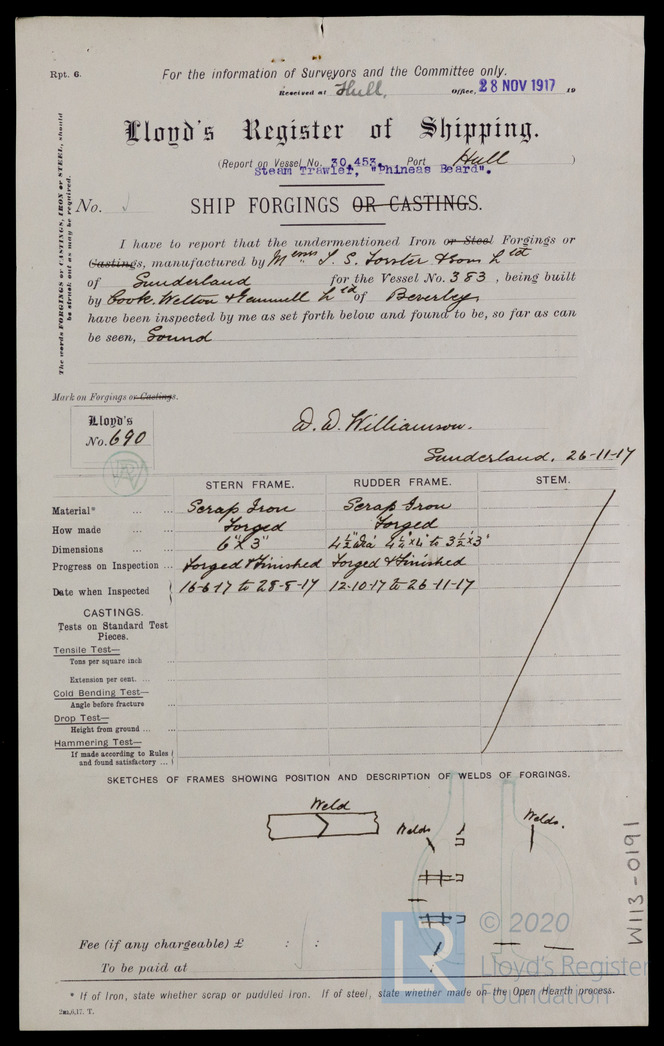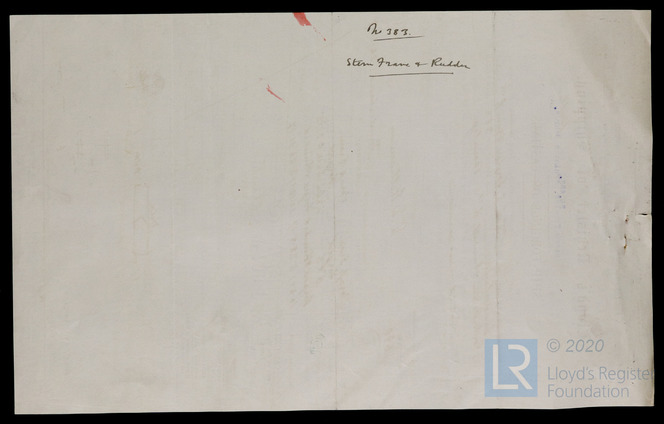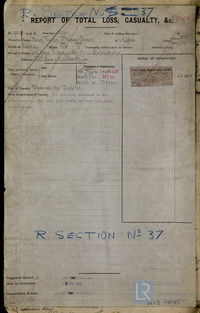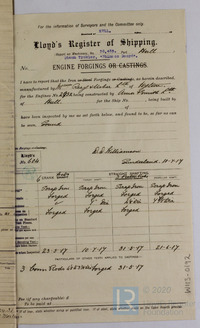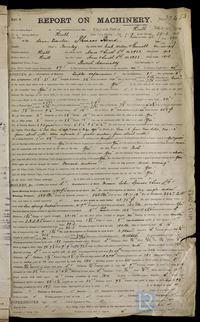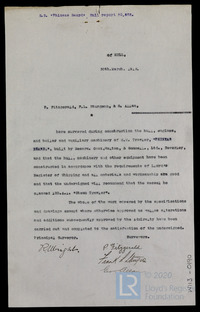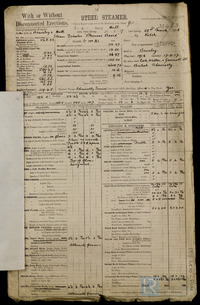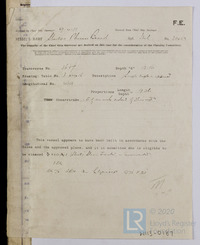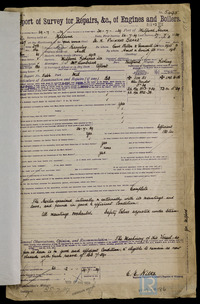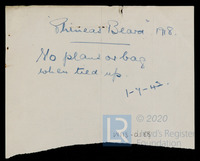- Related documents Related
- Full details Details
- Report document? Report?
Use the data export button to extract customised data sets from the Ship Plan and Survey Report Collection. Available in TSV and CSV formats.
Date recorded as the time of writing.
26/11/1917
The year in which a vessel’s construction is completed.
1918
The individual and/or organisation listed as having been responsible for constructing the vessel. This can/may be the same as the owner and/or manager.
Cook Welton & Gemmell
The port or place in which the vessel’s construction took place, at the time of writing.
Beverley
Additional numbers that feature on a given record that may be used for identification.
Lloyd's 690 DDW
Records that constitute Lloyd’s Register’s first official encounters with a specific vessel, e.g. a survey report.
N
The date of last visit by a surveyor.
26/11/1917
Location where the document is written.
Sunderland
Predominant material(s) utilised in a vessel’s construction.
Steel
Confirmation as to whether the vessel was equipped with refrigeration machinery to aid in the transport of frozen or chilled cargo/goods.
No
Does the vessel possess an auxiliary power source?
No
Is electric lighting fitted to the vessel?
No
The official record pronounced by the Committee
Sunk (war loss)
Recorded date for the vessel’s loss or disposal.
14/12/1941
Pertinent, useful or interesting recorded content.
Ship Forgings; Manufactured by J S Forster & Sons Ltd of Sunderland
Name of ship as recorded on the record
Phineas Beard
The process of transferring a vessel to water, but not necessarily her completion.
17/11/1917
Unique identifier for a given ship, it is assigned by a builder.
383
Official administrative title (often printed) of a record used by Lloyd’s Register or external organisations.
Ship Forgings
Other/additional record(s) specifically mentioned, referenced or associated to another record.
Hull 30453
The date of first visit by a surveyor.
16/06/1917
Name of the individual/entity/organisation responsible for authoring the record
D D Williamson
A vessel’s means of propulsion.
Steam
Is the steamer assisted by sail?
No
Is machinery fitted at the aft of the vessel?
No
Generally a smaller additional auxiliary boiler (often used while the vessel is at port).
No
Name of the Proving House responsible for the public testing and certification of a vessel’s anchors and/or chain cables.
No
Contextual information related to the reasons of the vessel’s loss or disposal.
Sunk Owing to War Causes
Physical extent of a record.
1
Report an issue with this document
Have you noticed missing or incorrect data or images for this document?
Please let us know and we will rectify the issue as soon as possible.

